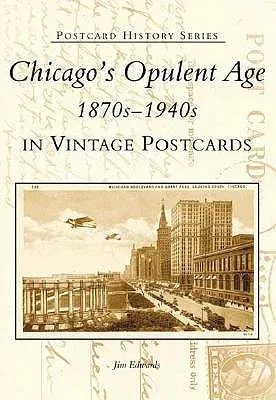Jim Edwards
(Author)Chicago's Opulent Age 1870s-1940s in Vintage PostcardsPaperback, 23 October 2001

Qty
1
Turbo
Ships in 2 - 3 days
In Stock
Free Delivery
Cash on Delivery
15 Days
Free Returns
Secure Checkout

Part of Series
Postcard History
Part of Series
Illinois
Print Length
128 pages
Language
English
Publisher
Arcadia Publishing (SC)
Date Published
23 Oct 2001
ISBN-10
0738519030
ISBN-13
9780738519036
Description
Product Details
Author:
Book Format:
Paperback
Country of Origin:
US
Date Published:
23 October 2001
Dimensions:
23.42 x
16.66 x
0.91 cm
ISBN-10:
0738519030
ISBN-13:
9780738519036
Language:
English
Location:
Charleston, SC
Pages:
128
Publisher:
Series:
Weight:
299.37 gm